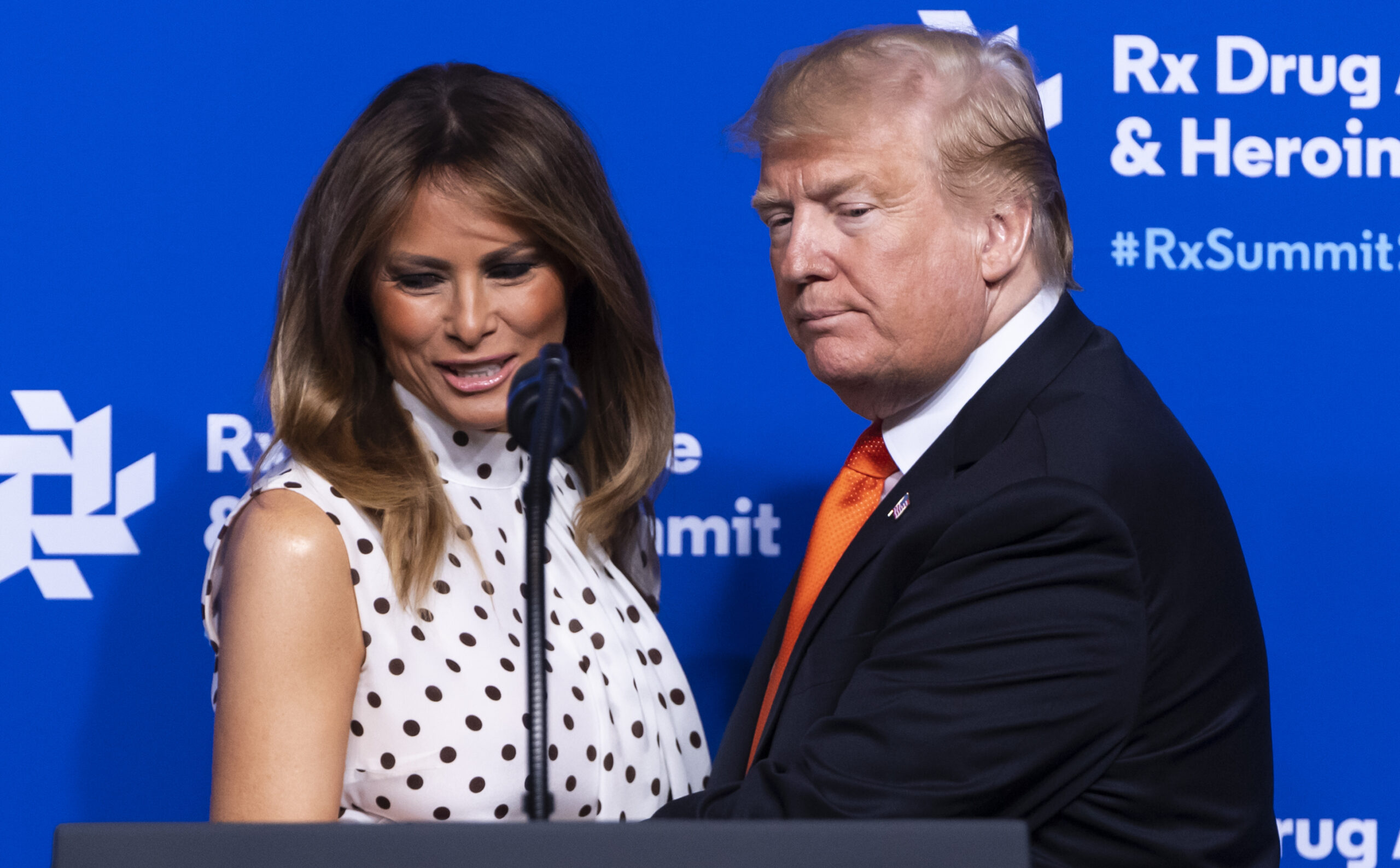President Trump Says His Administration’s Fight Against The Opioid Epidemic Continues

President Donald Trump takes the podium after first lady Melania Trump, left, spoke during the RX Drug Abuse & Heroin Summit, Wednesday, April 24, 2019 in Atlanta.
John Amis / Associated Press
President Donald Trump says his administration is not letting up its fight against the opioid epidemic.
He addressed the public health crisis before a conference of doctors, lawmakers, and public health officials gathered in Atlanta Wednesday.
“We will end this terrible menace. We will smash the grip of addiction, we will make our cities safe, our communities strong, and our future brighter than ever before,” Trump told attendees of the annual Prescription Drug Abuse and Heroin Summit.
In his wide-ranging remarks, Trump called for increased security measures at the U.S. border aimed at the flow of illicit drugs into the country as well as more accountability for prescription drug manufacturers.
He also highlighted a recent agreement with Chinese officials that they would crack down on trafficking of the powerful, synthetic opioid fentanyl and the $6 billion his administration has secured in recent years to fight the epidemic.
The president declared the opioid crisis a public health emergency in 2017, has released an extensive plan to end it, and signed legislation to that end late last year.
“We will reach out to anyone who is hurting or lost or struggling because every American deserves to know the glory of hope, the joy of belonging, and the blessings of healing,” he told conference attendees Wednesday.
But the latest data from the Centers for Disease Control and Prevention says drug overdose deaths are on the rise in the U.S.
The agency says some 70,000 people died of drug overdoses in 2017, and about two-thirds of those involved an opioid.
Just over 1,000 Georgians died of opioid overdoses that same year, according to the National Institute on Drug Abuse. It says Georgia’s rate of overdose death trails that of other states.
During his campaign for governor, Brian Kemp said lawmakers should make tackling the opioid epidemic a priority during the 2018 legislative session.
He’s already signed a bill into law that would legalize needle exchanges. The programs offer clean syringes, distribute naloxone, a drug intended to reverse the effects of an opioid overdose, and connect people with substance abuse treatment programs.
Hannah Cooper, who studies substance abuse at the Rollins School of Public Health at Emory University, says such programs are effective responses to the public health crisis.
Still, she laments efforts from the Trump administration to overturn the Affordable Care Act and the reluctance of states like Georgia to expand Medicaid as laid out under Obamacare.
“By undermining Medicaid expansion, and that has happened on the federal level in a number of ways in recent years, you are separating people from their primary care providers and therefore separating them from a range of services,” Cooper recently told WABE.
Georgia is embarking on some kind of expansion or tweak to the state’s Medicaid program. That could increase access to services to people struggling opioid abuse among any number of other options.
But Governor Kemp, who will play a key role in crafting a Medicaid waiver for the state, has yet to say what additional services might be provided to which segments of the state’s population.








